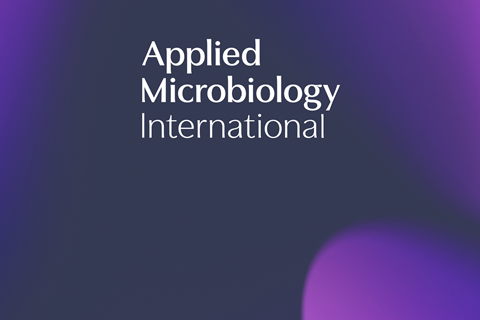The Society for Applied Microbiology (SfAM) has formally changed its name to Applied Microbiology International (AMI) in the latest evolutionary step for the organisation.
A new name, fresh new look, and the launch of online magazine The Microbiologist are just the first of many new initiatives that were announced this autumn after an intensive twelve-month strategic review.

“Our new name reflects how we have always seen ourselves – as a global community of microbiologists who have come together to advance scientific impact,” Chief Executive Lucy Harper said.
“At Applied Microbiology International, we fundamentally believe that microbiology can solve the world’s greatest challenges and that global issues need to be solved by global teams – teams that come from different disciplines within microbiology, from different stages of their careers and from both academia and industry. Collaboration is the key to scientific discovery.”
The organisation is the UK’s oldest microbiology society and was originally formed in 1931. It was set up by a group of dairy bacteriologists who came together to share their expertise by publishing the outcomes of their meetings. These communications became the then Society for Applied Bacteriology’s first academic journal, founded in the 1940s as the Journal of Applied Bacteriology. Eighty years later, Applied Microbiology International now boasts a stable of five well-respected scientific journals that showcase the latest cutting-edge research in the world of applied microbiology.
Renamed the Society for Applied Microbiology in the 1980s, the organisation gained charitable status and embarked on a path of professional growth that enabled it to deliver services that supported a much larger and globally diverse community of microbiologists.
Dr Harper explains why a further process of transformation was needed.
“We want to ensure that our brand and image reflects more accurately what we are - a progressive, diverse, professional, outward-looking international organisation,” she says.
Following a wealth of research and in-depth discussions with the then trustees, the organisation went through a stringent and insightful process that has resulted in a clear and ambitious strategic direction.
“Core to that strategy has been the selection of seven UN Sustainable Development goals that Applied Microbiology International is well placed to contribute to and that provide a framework for our work,” Dr Harper says.
“Applied Microbiology International is open to all and seeks out difference, because new perspectives unlock understanding. With members in more than 70 countries, Applied Microbiology International is a truly global organisation.
”AMI gives a voice to applied microbiologists around the world, amplifying our collective influence and informing international, evidence-based decision making. We help our members advance their studies and their careers, providing professional development, grants and funding, conferences, networking and opportunities to collaborate, across disciplines and around the world. We are a conduit for scientific discovery to improve the planet for all.”







No comments yet